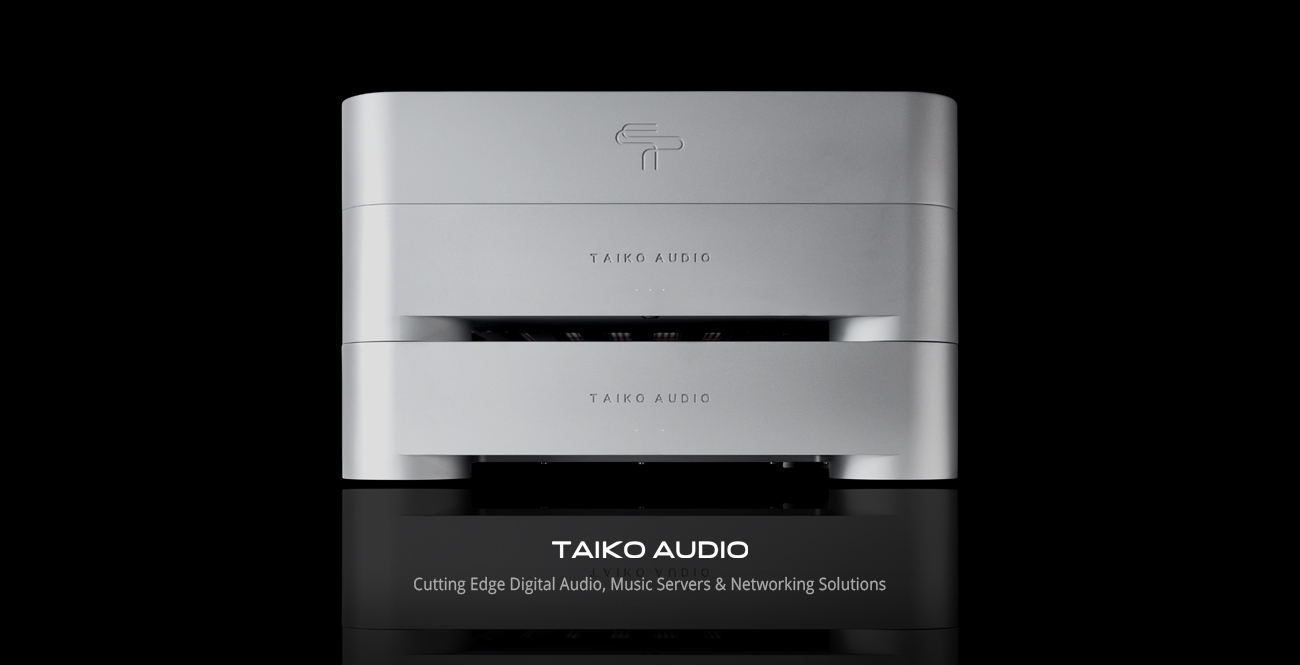Is the KBL cable stupid money or somewhat rationally priced?So far there are two options…..a cable made by Lukasz and one made by a Polish company KBL which Lukasz lauds
Introducing Olympus & Olympus I/O - A new perspective on modern music playback
- Thread starter Taiko Audio
- Start date
You are using an out of date browser. It may not display this or other websites correctly.
You should upgrade or use an alternative browser.
You should upgrade or use an alternative browser.
Steve Williams
Site Founder, Site Co-Owner, Administrator
It's all been posted by Lukasz. His cable is $1000 USD and the KBL is $3000 USDIs the KBL cable stupid money or somewhat rationally priced?
Mercifully, not Wadax wire pricingIt's all been posted by Lukasz. His cable is $1000 USD and the KBL is $3000 USD
...It is more than a job to them but rather a ...DEVOTED PASSIONreports Im getting out of Munich from vendors who happened to be in Emile and Bob's room is that the sound was nothing short of spectacular. And this is from XDMI coming via the analogue card.....streaming only with no internal files. To me that speaks volumes. Kudos Taiko team
It was refreshing to see the entire Taiko team enjoying beer and schnitzel after a hard but rewarding day's work. The synergy of the Taiko team is written on each of their faces by their smiles. One can sense that this Taiko team enjoys everything they are doing as it is more than a job to them but rather a career
@Taiko Audio
Hi Emile,
I hope all goes well in Munich and that the Olympus-XDMI gets the attention it deserves.
Apart from being a show for consumers, I can imagine that Munich Audio is also an opportunity to make contacts between audio professionals.
Have you approached or been approached by manufacturers curious about or interested in implementing the XDMI interface in their products?
Cheers,
Thomas
Hi Emile,
I hope all goes well in Munich and that the Olympus-XDMI gets the attention it deserves.
Apart from being a show for consumers, I can imagine that Munich Audio is also an opportunity to make contacts between audio professionals.
Have you approached or been approached by manufacturers curious about or interested in implementing the XDMI interface in their products?
Cheers,
Thomas
@Taiko Audio
Hi Emile,
I hope all goes well in Munich and that the Olympus-XDMI gets the attention it deserves.
Apart from being a show for consumers, I can imagine that Munich Audio is also an opportunity to make contacts between audio professionals.
Have you approached or been approached by manufacturers curious about or interested in implementing the XDMI interface in their products?
Cheers,
Thomas
Absolutely, having a chat with Lucas Domansky of LDMS about XDMI right now!

Hi from the AC room
Would be nice to clear things up a bit.
On our pre show tests, we found the Xdmi aes not as good as the USB port,so we went with usb connection.
For any reasons that may be ,USB sounded fantastic over the AES.
Funny to hear we would scrap a massive efford setting this system by sabotaging our digital that played 50% of the time.I thought this forum was adults only ?
Best regards
Stavros
Would be nice to clear things up a bit.
On our pre show tests, we found the Xdmi aes not as good as the USB port,so we went with usb connection.
For any reasons that may be ,USB sounded fantastic over the AES.
Funny to hear we would scrap a massive efford setting this system by sabotaging our digital that played 50% of the time.I thought this forum was adults only ?
Best regards
Stavros
StavrosHi from the AC room
Would be nice to clear things up a bit.
On our pre show tests, we found the Xdmi aes not as good as the USB port,so we went with usb connection.
For any reasons that may be ,USB sounded fantastic over the AES.
Funny to hear we would scrap a massive efford setting this system by sabotaging our digital that played 50% of the time.I thought this forum was adults only ?
Best regards
Stavros
That was my fault.. My apologies..
Marc
It is on the Lampizator Horizon and Totaldac
The thing to remember is how these interfaces are implemented in the DAC.
I wrote about this earlier in the thread, there are some very distinct differences between these interfaces beside practical things like sample rate support.
With AES/EBU and SPDIF the clock is at the source and embedded into the datastream send over the cable. This is then extracted at the receiver, in short, clock jitter will be relatively high.
To address this problem DAC manufacturers can incorporate reclockers on their inputs. Some DACs accept an external clock source, allowing you to use an external masterclock.
A very obvious example is Totaldac, their larger model DACs come with a reclocker by default, you can buy the reclocker seperately to add it to lower priced DACs, some of our customers even use 2 or 3 of these reclockers in series.
With USB I2S is generated inside the DAC, including clock, it’s up to the manufacturer how to further implement this, for which there are multiple options, but obviously jitter can be low to start out with. BUT USB receivers are electrically noisy.
Stavros tells me he optimised his DACs for USB, and yes to my ears it does sound better then AES/EBU, although AES/EBU is smoother, it doesn’t really capture things right in the time domain, as in sounds a bit slow / unexciting. So next up a native implementation for AC dacs!
I support all above.
Did some testing to bypass the USB in Totaldac and each time there was much better via AES input.
Also reclockers offer a very significant upgrade over stock Totaldac.
I have 3 additional reclockers and unfortunately cannot live with 1 or 2.
The reason is that Totaldac has extremely well optimized AES in their products so all their devices are build around that from input to output.
Aries cerat has probably optimized their JL Sounds USB interface so much that is far superior to AES.
It looks we all have to get Olympus and test ourselves what interface offers best SQ.
I Hope Olympus + Olympus IO will change my current SQ status and with their Analog outputs will offer a much better SQ than all others I will try.
Last edited:
All good.thank youStavros
That was my fault.. My apologies..
Marc
Stavros
Although I never tried the AES input on my Kassandra, since in AC you recommended me to go with USB, I thought that the XDMI output on Olympus and the input on the AC DAC with double reclocking in AES, would make a difference. The results you have obtained, Stavros, make me rethink my Olympus purchasing strategy: buy the XDMI card now, or wait for AC to implement XDMI.Hi from the AC room
Would be nice to clear things up a bit.
On our pre show tests, we found the Xdmi aes not as good as the USB port,so we went with usb connection.
For any reasons that may be ,USB sounded fantastic over the AES.
Funny to hear we would scrap a massive efford setting this system by sabotaging our digital that played 50% of the time.I thought this forum was adults only ?
Best regards
Stavros
Stavros, do you have a time estimate to have the XDMI entry implemented?
Last edited:
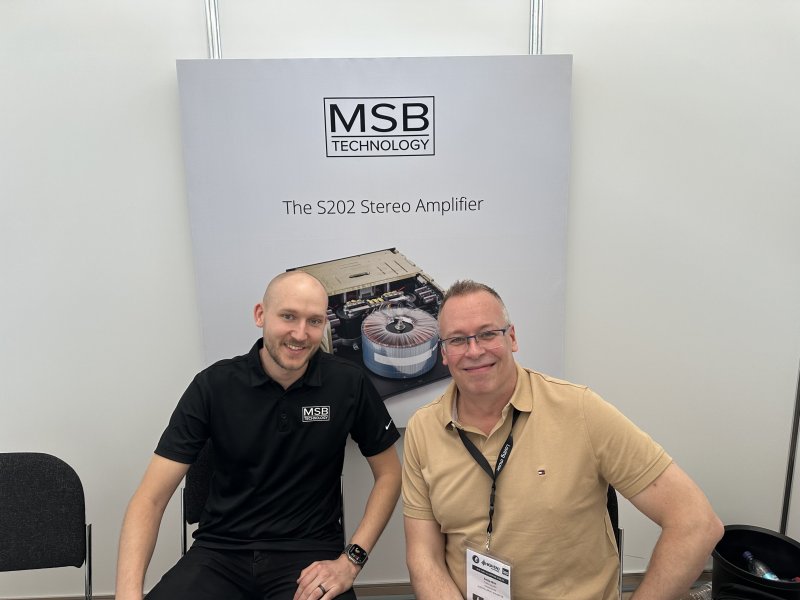
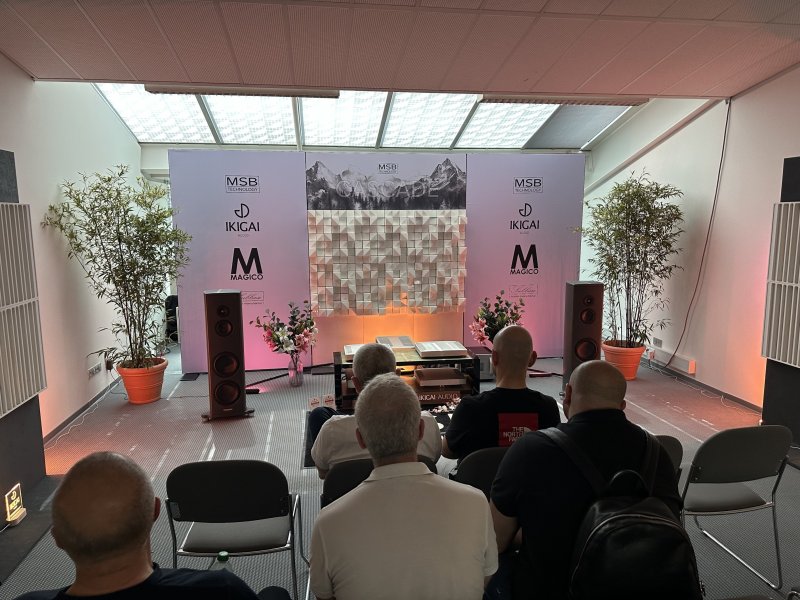
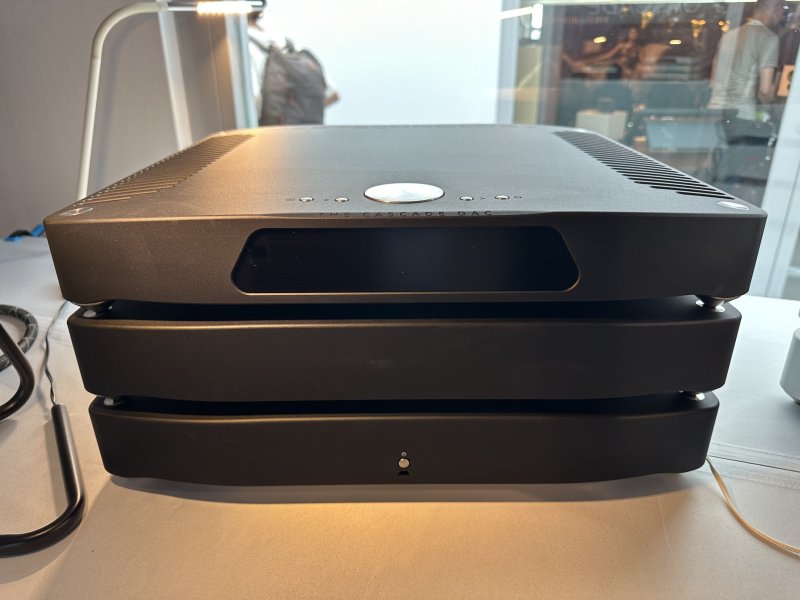
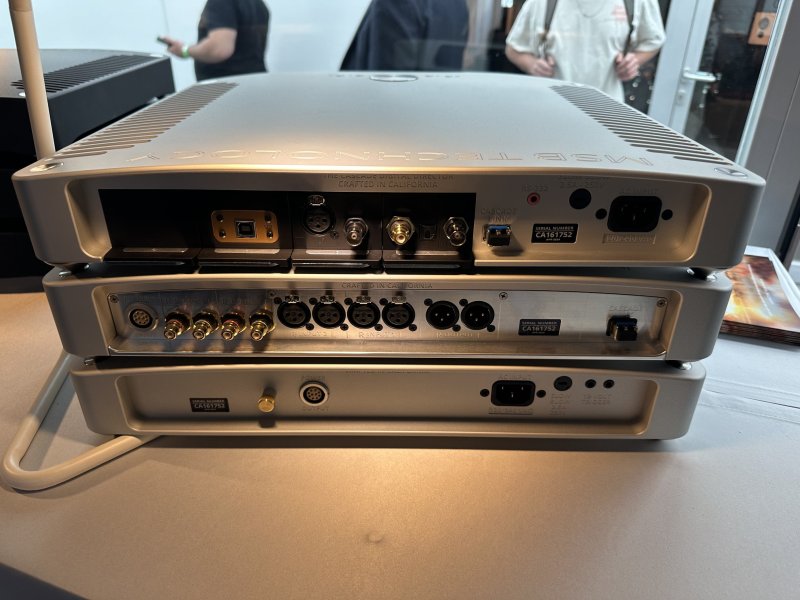
We had a productive meeting with Daniel and Jonathan today, it was very nice to finally meet face to face. @DMSB will post an update on our adaptation of the MSB Pro ISL technology in the next week or so.
Very happy to hear about that, thank you!View attachment 130887
View attachment 130888
View attachment 130889
View attachment 130890
We had a productive meeting with Daniel and Jonathan today, it was very nice to finally meet face to face. @DMSB will post an update on our adaptation of the MSB Pro ISL technology in the next week or so.
Did you talk to Stavros about the XDMI implementation?
Ofcourse we had a small chat about it but we already started on that months ago.
Stavros visited us in Oldenzaal early March to workout some details on that. The way Stavros implements, clocks and interfaces his DACs is rather unique, hence it’ll take some custom programming and circuit design to meet his specific standards and requirements, but we’ll get it done and I’m sure it will be very impressive.
About the use of USB, we did a SPDIF vs AES/EBU vs USB comparison Saturday night, while I completely understand Stavros choice to use USB, I would actually have picked AES/EBU myself. It was most definitely significantly more organic, agile, and much much lower noise, very evident from about 2KHz and up. Stavros however builds maybe the most dynamic electronics I have ever heard, my estimation would be he would not want any compromises in that area. But yes the AES/EBU interface is less dynamic, it’s about on par in that area with the Kalista dreamplay transport when used with the Lampizator Horizon, nothing like the XDMI Lampizator link. We’re both convinced the native XDMI implementation will be something special.
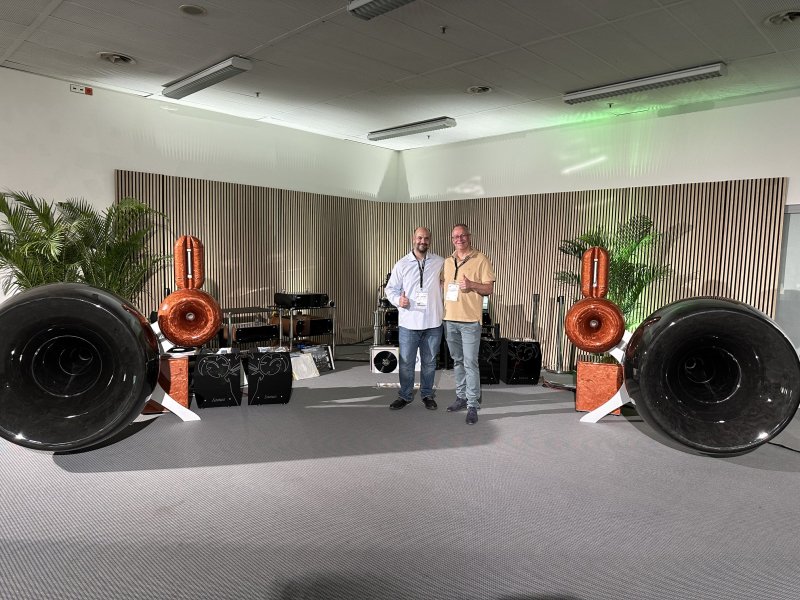
Great information. On the other hand, I don't forget that you said that when you designed the balanced analog output, you would take the opportunity to add some “treat” to the current RCA output.
I’d say listen to the one we already have first
But ofcourse we can design different/better versions. The main reason we made it modular to this degree is to be able to provide easy retrofittable upgrades at reasonable prices.
Emile.The real question everyone will ask here is
if we will get fully battery powered Olympus? Or the 3 Battery + AC powered as designed before ?
That should be additional significant upgrade in SQ.
Also will that require additional patience?
Sorry for bothering after a very busy time in Munich. I believe this above was not answered.
I hope there is still a chance for fully battery supply Olympus to be implemented into my Olympus.
I know it's a longer story of how you did it
but having it build in would be probably an ultimate solution to the power problems I have.
There’s only one Olympus, and yes it’s fully battery powered. Will share in depth details when I get a chance.Emile.
Sorry for bothering after a very busy time in Munich. I believe this above was not answered.
I hope there is still a chance for fully battery supply Olympus to be implemented into my Olympus.
I know it's a longer story of how you did it
but having it build in would be probably an ultimate solution to the power problems I have.
There’s only one Olympus, and yes it’s fully battery powered. Will share in depth details when I get a chance.
Thank you Emile !
That's all I wanted to know.
I believe most of us will celebrate now as this will be most likely an additional very significant SQ improvement.
Sometimes a short delay in order is a gigantic blessing in the end.
Well worth waiting.
Similar threads
- Replies
- 2
- Views
- 5K
- Replies
- 1
- Views
- 675
- Sticky
- Replies
- 521
- Views
- 90K
| Steve Williams Site Founder | Site Owner | Administrator | Ron Resnick Site Owner | Administrator | Julian (The Fixer) Website Build | Marketing Managersing |


